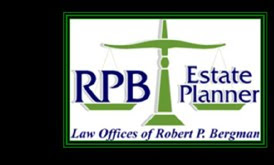There is a “gap” in Medicare coverage for those who are disabled and under 65. Richard Wohltman describes his concern about this “gap” below. Wohltman and I are both members of WealthCounsel – a nationwide Community of Estate Planning Practitioners. He is located in Alexandria, VA and I find his views valuable, because he is frequent lecturer on Estate Planning and related issues. And he is also a contributing author of Ways & Means - Maximize The Value of Your Retirement Savings.
"More than 50 million people in the United States have disabilities, a number that is growing rapidly as the population ages. Experts say disability will soon affect the lives of most Americans." Patricia Bauer.
If you are unlucky enough to suffer a disability when you are under 65, you may find that Medicare is the only way your health care costs can be paid. If you or a loved one becomes disabled and are unable to work, you may be extremely frustrated to discover that there is a long delay before you are qualified to receive Medicare assistance. The general waiting period is two years after they start receiving Social Security Disability Income.
Andy Hook is a respected elder law attorney in Virginia who wrote about this dilemma in his article "Waiting for Medicare" in the September 17, 2010 edition of the Oast and Hook News.
"A recent Kaiser Health News article addresses the issue of Medicare and persons younger than 65 years of age who have disabilities. Under current federal rules, such persons are not eligible for Medicare until two years after they start receiving Social Security Disability Income. . . . Congress created the waiting period in 1972 when Medicare was expanded to cover persons with disabilities. The waiting period was designed to control costs and to ensure that only those with ongoing, severe disabilities received Medicare coverage. According to the Kaiser Family Foundation, approximately seventeen percent of Medicare’s 47 million beneficiaries receive disability benefits."
Andy notes that the waiting period is shorter for people with certain specified disabilities, many patients face extreme financial hardship during the extended waiting period. The new health care program may eventually remove barriers for patients to be eligible for private health insurance, the only answer to this unhappy situation is in Congress' hands.
"Edmund Haislmaier, a senior policy research fellow at the Heritage Foundation, said that eliminating the waiting period “is always going to be an issue in Congress. Some of it is money, some of it is politics, too. For members of Congress, irrespective of party or where they stand on the issue, it’s kind of all-or-nothing because if they did it for some diseases, they’re immediately going to be inundated with ‘Why didn’t you do it for us?’” Some groups, however, such as the Huntington’s Disease Society of America, are asking Congress for specific waivers from the waiting period for their diseases. They believe it may be more politically feasible to press for relief for specific diseases, because the cost of doing so would be less than the cost of across-the-board relief."
You can find Andy's complete article at "Waiting for Medicare"
I guess we all assume that health care is something we will be able to obtain if we are disabled. I know that I was upset after reading Andy's article. I think you will be too.
Your local elder law attorney may be able to help you find alternatives and opportunities if you or a loved one has to face this unfortunate situation.
**********
The fact that my colleague, Richard Wohltman, finds this information upsetting surely means that you may be unaware of this “gap” in Medicare coverage. Please contact me if you have questions….or please comment on this posting.






